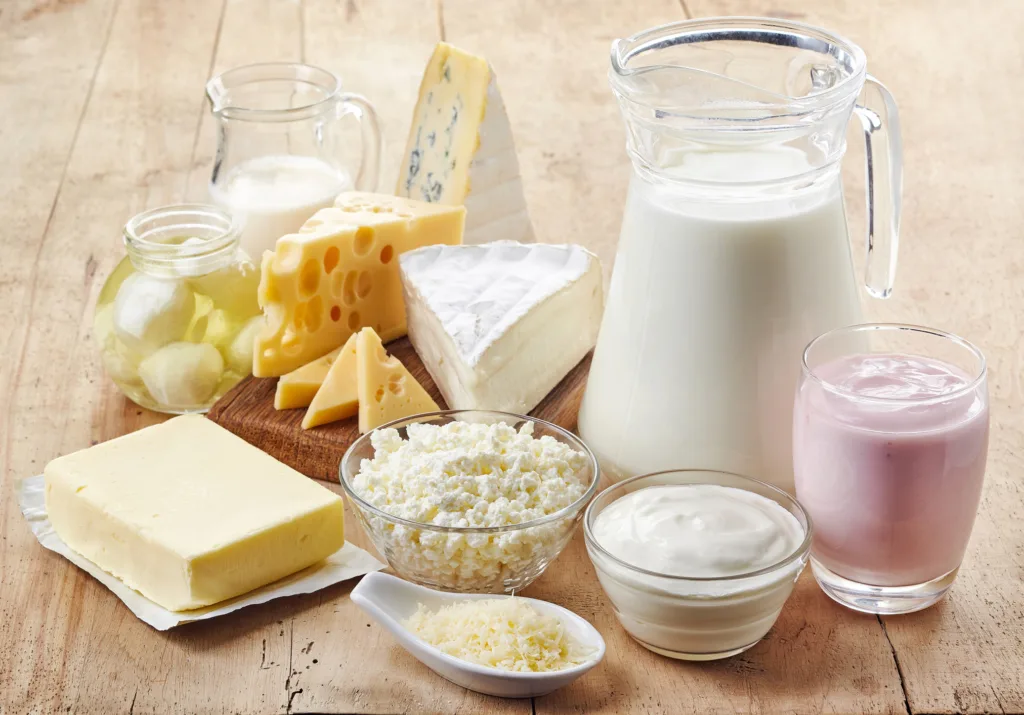Dairy products like milk, yogurt, and cheese are dietary staples for many people around the world. However, the connection between dairy consumption and weight management is complex, with conflicting viewpoints on whether dairy aids or hinders weight loss efforts. In this post, we will explore the multifaceted role of dairy in weight loss and provide a balanced look at the potential benefits and drawbacks of including dairy in a weight loss diet.
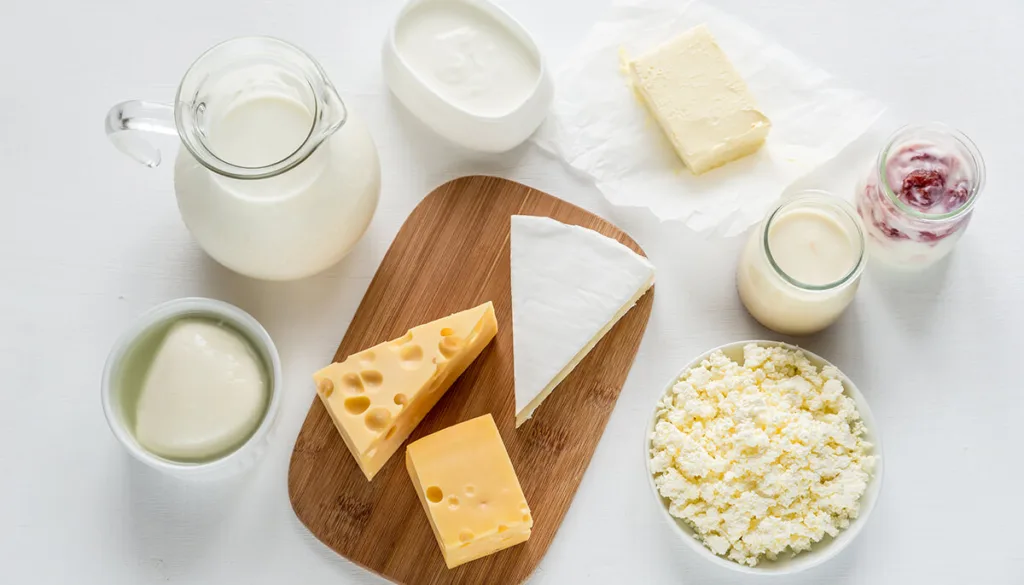
Highlighting Dairy’s Importance
Dairy products provide a package of essential nutrients that are difficult to obtain elsewhere in the diet. Milk, yogurt, cheese, and other dairy foods are excellent sources of calcium, protein, vitamin D, vitamin A, vitamin B12, potassium, phosphorus, riboflavin, and more. Calcium plays vital roles in muscle, heart, and nerve function, blood clotting, and supporting bone health. Meanwhile, protein helps build and repair tissues as well as curb hunger and support satiety. With its unique nutritional profile, it’s easy to see why dairy has become a dietary staple across many cultures worldwide.
Beyond nutrients, dairy also offers functional benefits like improving hydration, aiding digestion, and providing probiotics for gut health. On top of that, many people simply enjoy the taste of dairy and its versatility as an ingredient in sweet and savory dishes. Considering its nutritional density, hydrating qualities, probiotic content, and culinary versatility, it’s clear that dairy can play a valuable role in a healthy, balanced diet.
Setting the Stage
Given dairy’s widespread popularity and nutritional benefits, it’s no surprise that many view dairy products as allies for weight management. However, dairy’s effects on body weight are nuanced, with research showing mixed results. Some studies link dairy intake to weight loss or prevention of weight gain, while others show no effect or even possible weight gain with high intakes. The influence of dairy on weight likely depends on the individual, type of dairy food, fat content, and overall eating pattern. By exploring the mechanics behind dairy’s connection to weight loss, we can better understand how to harness its potential benefits while mitigating possible downsides.
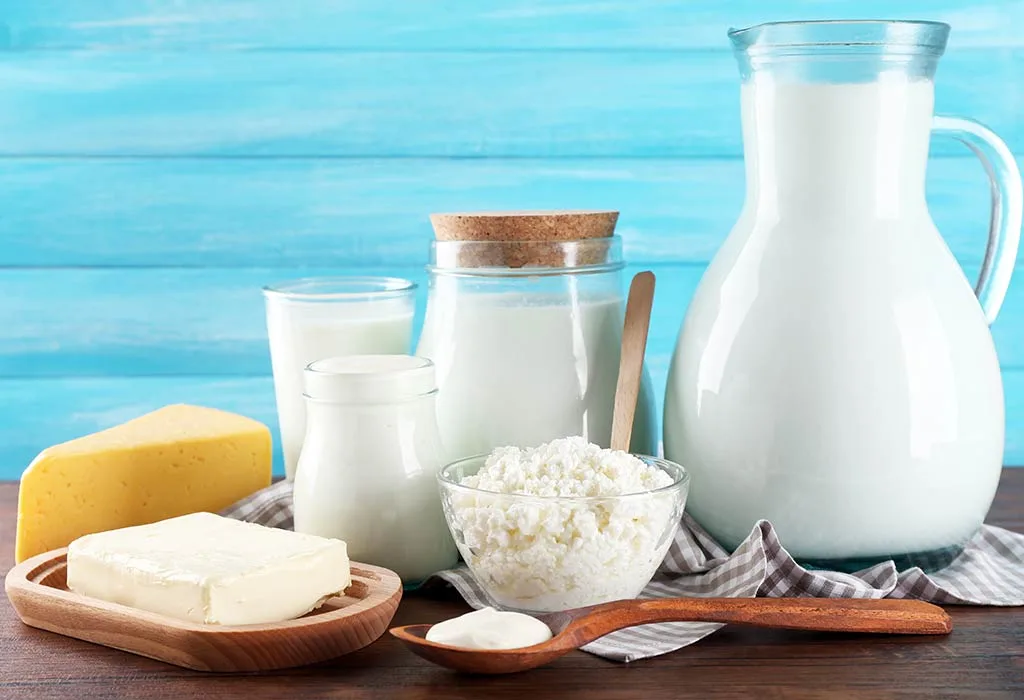
Types of Dairy Products and Their Impact on Weight Loss
Not all dairy products are created equal when it comes to weight management. Different dairy foods have unique nutritional profiles and effects on hunger, satiety, and metabolism. Here’s a breakdown of how the major players may influence weight:
Milk: As a rich source of satiating protein, calcium, and hydration, milk could support weight loss. One study found that higher milk intake correlated with lower body mass index (BMI). However, watch the fat content – going for skim or low-fat milk provides protein and calcium without extra saturated fat.
Yogurt: With its protein, probiotics, and satiating healthy fats, yogurt is a go-to for weight loss. Studies show yogurt consumption promotes fat loss, especially around the waistline. Opt for unsweetened Greek yogurt to maximize the protein.
Cheese: While cheese provides protein, it’s also high in calories and fat. Still, small amounts of cheese may help control hunger and cravings. Cheese also contains conjugated linoleic acid, which could promote fat loss. Just be mindful of portions.
Cottage Cheese: With mostly protein, few carbs, and moderate fat, cottage cheese is excellent for weight loss. Its casein protein keeps you feeling fuller longer. Choose low or reduced-fat versions.
Kefir: Similar to yogurt, this fermented milk has protein, probiotics, and nutrients. Early research finds kefir shows promise for reducing body fat and weight. Stick to plain, low-fat kefir.
In summary, leaner dairy foods like yogurt, cottage cheese, and kefir offer better options for losing weight, while whole milk, cream, and some cheeses should be minimized.
Calcium and Weight Management
The calcium in dairy products could also influence weight control in several ways. First, calcium promotes fat breakdown and inhibits formation of new fat cells. Second, it binds fat inside the intestines, preventing absorption into the bloodstream. Third, calcium signals the body to burn excess fat by activating a receptor that increases fat breakdown.
For these reasons, adequate calcium intake is linked to lower body fat, reduced belly fat, faster fat loss, and greater weight loss. One study found that increasing dairy and calcium intake while dieting boosted weight loss by an average of 70% more compared to restricting calories alone.
Since dairy products are the most common source of calcium in modern diets, getting enough calcium is another reason dairy can be beneficial for dropping excess pounds. For the greatest impact, strive for the recommended dietary allowance for calcium of around 1,000 milligrams per day.
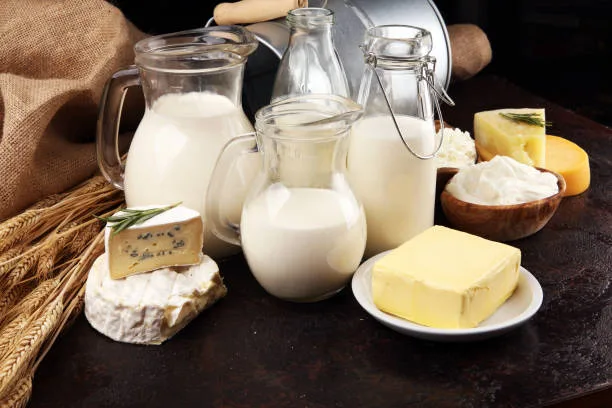
Protein Power: Dairy as a Source of Lean Protein
With substantial amounts of high-quality protein, dairy products are essentially natural protein supplements supporting muscle growth and fat loss. Milk, Greek yogurt, cottage cheese, and other dairy foods provide protein to build and preserve calorie-burning lean muscle mass. Higher protein diets lead to better appetite control, increased satiety after meals, and reduced late-night cravings.
Protein also has a higher thermic effect than carbs or fats, so your body burns more calories digesting it. In one study, people who had yogurt as an afternoon snack consumed 100 fewer calories at dinner compared to those who ate candy – talk about protein power at work!
Since muscle is metabolically active and burns calories around the clock, building or maintaining muscle via dairy protein means a higher resting metabolism and more calories torched 24/7. For these benefits, aim for 25-30 grams of protein per meal containing some combination of dairy, meats, fish, eggs, beans, and legumes.
Probiotics in Dairy: A Gut-Healthy Approach to Weight Loss
The live active cultures found in yogurt, kefir, and other fermented dairy work their magic through your gut. Consuming probiotics can influence weight by optimizing digestion, controlling gut bacteria, reducing inflammation, and extracting more calories from food.
Studies find probiotic yogurt consumption is associated with lower body weight, less body fat, smaller waist circumference, and significant reductions in weight and fat percentage compared to non-dairy or conventional dairy foods. For instance, one study had participants eat 300 grams of yogurt daily for 12 weeks. The probiotic yogurt group lost 61% more fat mass and 81% more belly fat versus the control group!
While research is still emerging, the healthy gut bacteria from probiotic dairy may improve weight loss efforts. Aim for at least one serving of probiotic yogurt, kefir, or fermented cheese daily as part of a high fiber diet and active lifestyle for the greatest effects.
Dairy and Satiety: The Feeling of Fullness
Dairy products shine when it comes to prolonging feelings of fullness thanks to their one-two punch of protein and fat. The protein in dairy slows digestion, while the fat signals satiety hormones in the gut that say “You’re full – stop eating!”
In fact, eating yogurt as a snack led to reduced hunger and increased fullness compared to lower protein, lower fat snacks. Another study found teens who ate yogurt felt fuller and consumed 100 fewer calories at subsequent meals compared to skipping the yogurt snack.
That lasting feeling of satiety is a key reason higher dairy intake is linked to lower BMI in adults and children. Next time hunger strikes between meals, reach for yogurt, cottage cheese, or milk to stay satisfied on fewer calories and avoid overeating at mealtimes.
The Controversy: Dairy and Weight Loss Challenges
While dairy offers many potential perks for weight management, it’s not universally agreed upon as an aid for weight loss. Some researchers suggest dairy may not improve weight loss or even cause weight gain in some individuals.
Several factors may influence the conflicting findings:
- Fat content: Full-fat dairy foods add more calories, which could negate the benefits of protein and calcium. Sticking to low or non-fat dairy is likely best for fat loss.
- Portion sizes: Despite benefits for satiety, it’s still possible to overconsume calories from dairy. Stick to recommended portions instead of unconstrained consumption.
- Milk sugars: The carbohydrate lactose is linked to insulin spikes which may be counterproductive for weight loss in some individuals. Limit dairy if you have difficulty digesting lactose.
- Hormones: Dairy may contain traces of growth hormones like IGF-1 which could affect weight regulation. However, human data is inconclusive on actual impacts.
Overall, dairy may not benefit everyone equally for weight loss. As with any food, pay attention to your individual response.
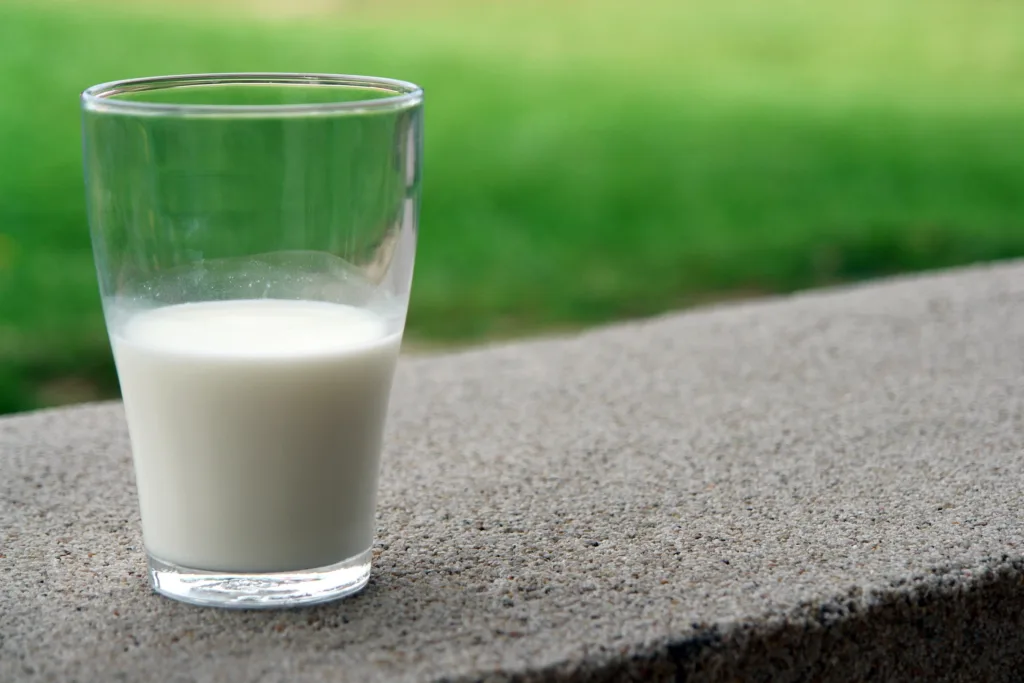
Incorporating Dairy into Your Weight Loss Diet
If you want to tap into the potential weight loss benefits of dairy, here are some simple tips for including it your diet:
- Have a yogurt parfait with fresh fruit for breakfast. The protein keeps you satisfied and cuts cravings.
- Add berries and nuts to plain Greek yogurt for a fiber & protein-packed snack.
- Mix cottage cheese into scrambled eggs to give your breakfast a protein punch.
- Blend milk or yogurt into healthy smoothies for extra thickness and creaminess.
- Snack on string cheese for an easy, portable protein option to tame hunger.
- Use plain yogurt instead of sour cream for lighter dips and dressings.
- Create a healthy lunch bowl with yogurt, fruit, nuts, and whole grains.
- Enjoy a small amount of aged cheese with whole grain crackers as an appetizer before dinner.
With some creativity and smart substitutions, you can easily incorporate dairy foods into your routine for better weight management.
Recap Key Points
To recap, the key roles dairy may play in supporting a healthy weight include:
- Providing protein for building muscle and fueling satiety
- Supplying calcium to boost fat breakdown
- Containing probiotics to improve gut health and metabolism
- Creating feelings of fullness and reducing subsequent calorie intake
- Offering versatility for cooking flavorful lower calorie meals and snacks
However, the benefits are most pronounced when choosing low or non-fat dairy options and keeping portions in check.
Balanced Dairy Consumption
Research on dairy for weight management remains mixed. While some studies boast impressive benefits, others are less conclusive. At the end of the day, quality nutrition research rarely uncovers one-size-fits-all solutions. Our response to foods varies based on individual differences in lifestyle, metabolism, gut health, food sensitivities, and more.
When it comes to your weight loss goals, let your results be the judge regarding dairy consumption. Pay attention to how you feel after eating different dairy products and how they affect your energy, hunger levels, cravings, and ability to stay satisfied on fewer calories. Stick with what works well for your body and goals.
Aim for reasonable portions of reduced fat dairy foods as part of a whole food diet rich in plants, lean protein, and healthy fats. Complement daily movement with regular exercise to see the best possible results. Achieving an overall healthy lifestyle matters most for lasting weight management success.
Thank you for exploring the multifaceted role of dairy in weight loss with us. Stay informed with our latest insights by subscribing to our free newsletter. Additionally, continue your journey towards better health by exploring our related posts on food, nutrition, health, wellness, and weight loss.
Thank you for reading this post, don't forget to subscribe to our free newsletter
!